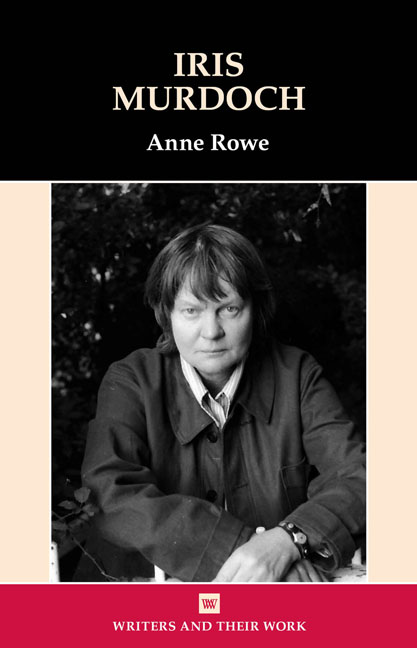Book contents
- Frontmatter
- Dedication
- Contents
- Acknowledgements
- Biographical Outline
- Abbreviations
- Introduction: Iris Murdoch (1919–1999)
- 1 A Writing Life: 1954–1995
- 2 Writing the Novel of Ideas: The Philosopher and Public Intellectual
- 3 Writing Sacraments: The Holy Atheist
- 4 Writing ‘A New Vocabulary of Experience’
- 5 Writing the Landscape: The Island of Spells and the Sacred City
- Afterword: ‘Onward!’
- Notes
- Select Bibliography
- Index
2 - Writing the Novel of Ideas: The Philosopher and Public Intellectual
- Frontmatter
- Dedication
- Contents
- Acknowledgements
- Biographical Outline
- Abbreviations
- Introduction: Iris Murdoch (1919–1999)
- 1 A Writing Life: 1954–1995
- 2 Writing the Novel of Ideas: The Philosopher and Public Intellectual
- 3 Writing Sacraments: The Holy Atheist
- 4 Writing ‘A New Vocabulary of Experience’
- 5 Writing the Landscape: The Island of Spells and the Sacred City
- Afterword: ‘Onward!’
- Notes
- Select Bibliography
- Index
Summary
I don't want to mix my philosophy and fiction – they’re totally different disciplines, different methods of thought, different ways of writing, different aims. (TCHF 36)
I certainly do not believe it is the artist's task to serve society […] as soon as a writer says to himself “I must try to change society in such and such a way by my writing” he is likely to damage his work. (EM 16–17)
Murdoch's commitment to writing novels that engaged with her readers’ lives and emotions resulted in a moral psychology so acute that the novels take on kaleidoscopic properties: younger readers are perhaps more likely to respond to issues regarding freedom, gender ambivalence, determinism and fate, while later in life, erotic servitude, loving truthfully, enduring suffering and the tussle between good and evil might take centre stage. Out of the same novel, read in more mature years, the value of friendship, the undimmed power of the past, and the agonies of remorse, grief and mortality emerge from hitherto hidden corners. Generations of critics have attempted to articulate the ways the moral psychology within the novels engaged with Murdoch's impressive body of moral philosophy, but assessing how far her novels can be read as didactic enactments of the philosophy has both challenged and energized Murdoch scholarship for decades. At the heart of such debates lie Murdoch's concerns about the limitations of philosophy and the pre-eminence of literature in reaching out to affect human behaviour: ‘for both the collective and the individual salvation of the human race, art is doubtlessly more important than philosophy, and literature most important of all’ (EM 362). Yet philosophy was an equal necessity, a refined intellectual space where she could contemplate philosophical ideas of perfection which were then returned to the muddle and contingency of her fictional world. Here her philosophy was tested against the real-life scenarios of an art that was itself informed by the intensity of experience that characterized her own life.
The desire to write both novels and philosophy had always featured amongst Murdoch's professional ambitions.
- Type
- Chapter
- Information
- Iris Murdoch , pp. 41 - 58Publisher: Liverpool University PressPrint publication year: 2019



